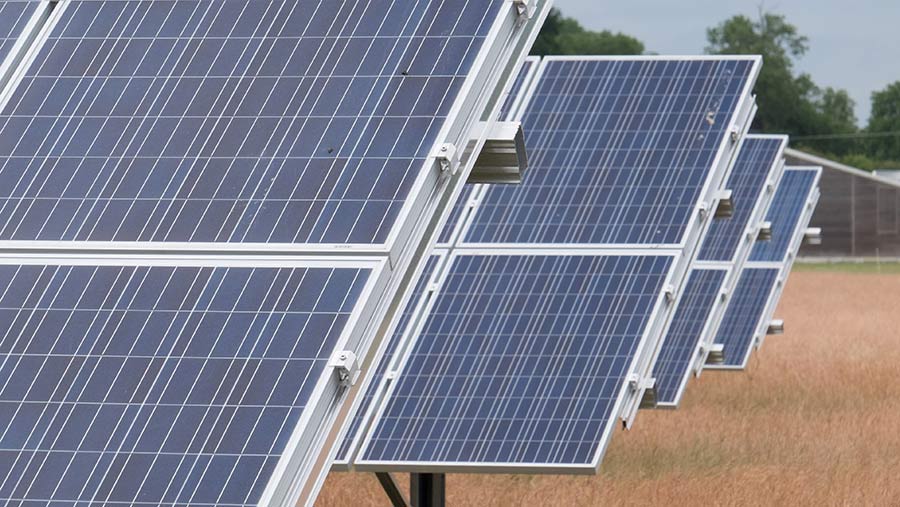Plans for UK’s largest solar farm threaten food production
 © Tim Scrivener
© Tim Scrivener Developers have unveiled plans for the UK’s largest solar farm on 880ha of productive farmland in the East Midlands, sparking a debate on land use.
Early proposals state the 350mW Mallard Pass Solar Farm will straddle the east coast mainline railway in South Kesteven, Lincolnshire, and part of Rutland county.
See also: Solar farm size of 100 football pitches approved in Devon
In terms of output, the venture will match the UK’s biggest solar farm, Project Fortress in Cleve Hill, Kent. But the 880ha Mallard Pass development covers more than two and half times the area of the Kent site, making it the largest in the UK to date.
Because its capacity exceeds a government trigger point, set at 50mW, final approval rests with the business, energy and industrial strategy secretary Kwasi Kwarteng.
Joint developers Windel Energy and Canadian Solar said they would begin the process by lodging a planning application in 2022 and expected a decision the following spring.
However, while the developers only unveiled the plans to the public last month, they revealed negotiations over financial agreements with farmers began around 18 months ago.
Long-term leases
A company spokeswoman said no land had yet been purchased and that the approach was to secure land via long-term lease.
She added that more detailed discussions over land use, siting of panels and management around the solar arrays were now under way.
The spokeswoman pointed out that the Mallard Pass Solar Farm differed from other solar farm proposals in that it had less densely packed arrays.
This created more opportunity to farm around the panels and to enhance biodiversity.
“We are engaging with the landowners to understand their cropping regimes and the performance of the land, including soil mapping,” the spokeswoman said. “The final design of the project will take this into account, balancing a range of factors including agricultural land and residential amenity.
“Our priorities are to deliver a project-wide diversity net gain and to maximise agricultural use such as sheep grazing,” she said.
Concerns
However, campaign group Save British Farming has expressed concern over the loss of the productive land.
Spokeswoman Liz Webster said she fully understood why farmers wanted to enter secure long-term financial agreements when government policy was eroding support for food producers.
“Farming is hard enough even with support, so I understand the logic,” she said. “But for the country as a whole it is frightening to see our food security eroded, like this.”
It would inevitably lead to greater reliance on low-quality imported food, ultimately at the cost of the environment, she said.
An initial consultation will continue until 16 December when a Development Consent Order application will be submitted to the Planning Inspectorate.
Have your say
To express your views about the project:
Phone: 0808 196 8717
Email: info@mallardpasssolar.co.uk
Website: www.MallardPassSolar.co.uk
Do you have any further thoughts on renewable energy and the loss of productive farmland? Why not share them with Farmers Weekly by emailing farmersweekly@markallengroup.com
